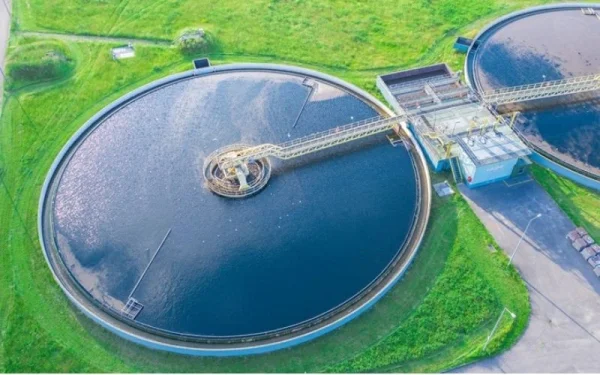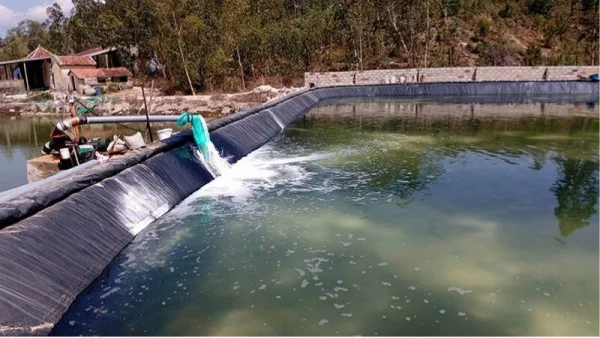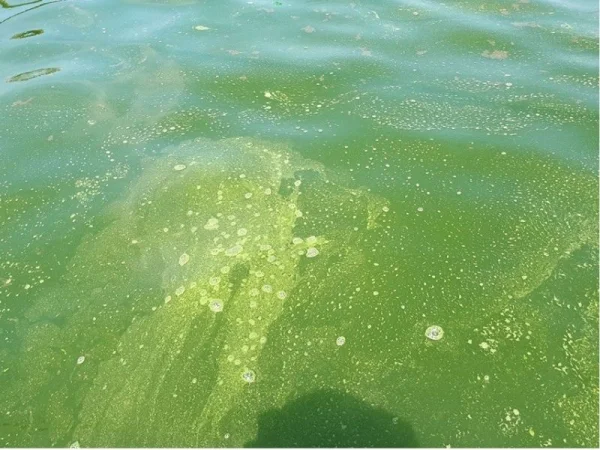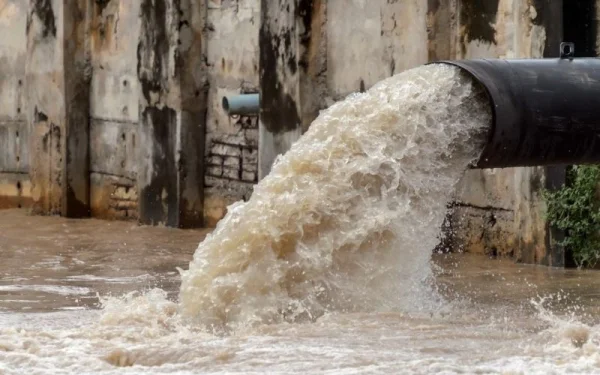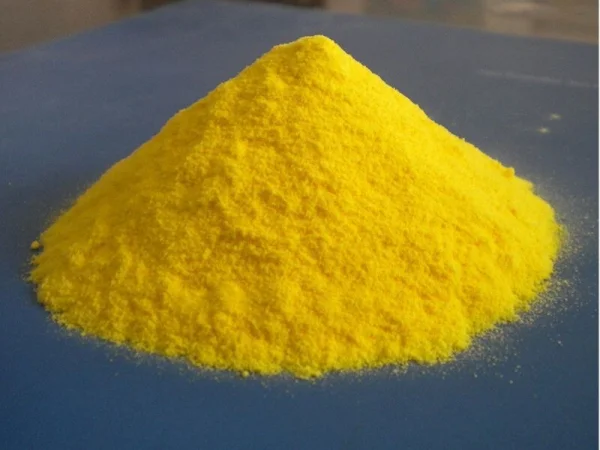
Currently, wastewater treatment chemicals are one of the most effective solutions to the problem of water pollution. This is certainly a top concern when clean water sources are gradually being seriously polluted by domestic wastewater and residential waste. Can this solution be effective and safe? Let's find out with Dong A.
1. What are the chemicals used to treat wastewater?
Wastewater treatment chemicals are the common name used to refer to chemicals that have the ability of removing toxic substances, impurities, and bacteria that exist in wastewater from households or factories before being released into the environment.
Not only that, these chemicals can also react with grease and toxic substances, etc. in wastewater to convert into deposited residues, gases and create a safe water source before being discharged into the environment.
2. Why is it needed to treat wastewater?
With water resources gradually depleted, water treatment to bring clean water to people and the environment is truly urgent.
In particular, when wastewater from factories and households is not treated before being discharged into the environment, it will directly affect human health and cause diseases such as skin allergies and skin cancer, the environment and ecosystem are destroyed.
Therefore, to ensure safety, before discharging wastewater into ponds, lakes, rivers and streams, it is necessary to use chemicals to clean the wastewater source.
3. Water treatment chemicals are commonly used today
Based on outstanding properties and functions, water treatment chemicals are divided into 4 types:
3.1. Flocculation chemicals
- PAC
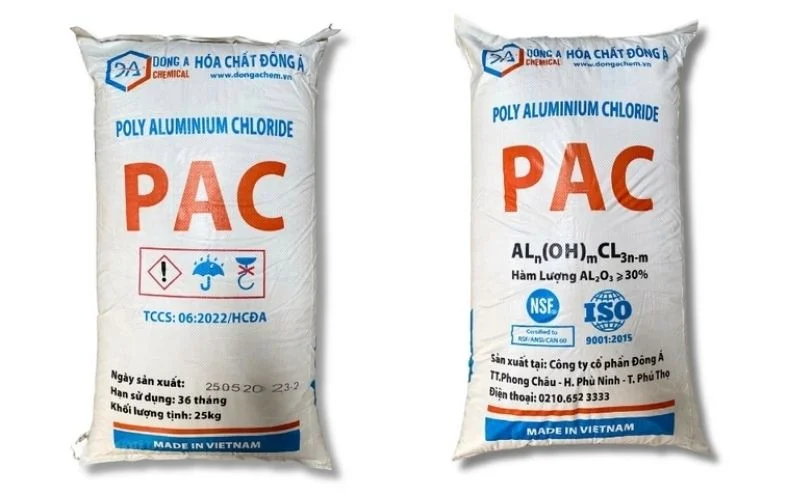
Poly Aluminum Chloride is known as a chemical that treats wastewater in flocculation form. It is able to remove organic matter, bacteria, viruses in water for water supply and wastewater treatment from industrial parks, parking lots, roads, houses, aquaculture water, ... and aids in settling suspended impurities.
In addition, because PAC has the ability of removing soluble and insoluble organic substances and heavy metals better than alum, water treatment with PAC chemicals provides cleaner water of higher quality. Therefore, developed countries almost always choose PAC for use in domestic water supply plants, providing domestic water for households.
- Potassium alum Al2(SO4)3.18H2O
This is a chemical that exists in coagulant form, capable of causing impurities in water to coagulate into large sand particles and then settle to the bottom. Due to its availability in the market and low price, potassium alum is widely used in industrial water treatment.
- Aluminum Sodium Dioxide NaAlO2
Aluminum Sodium Dioxide (NaAlO2) is also frequently used in industrial wastewater treatment, with the purpose of reducing water hardness. At the same time, they are also used as a coagulant to help deposit suspended impurities in water, remove silica and dissolved phosphate compounds.
- Iron alum Fe2(SO2)3.2H2O
It is also widely used in water treatment as a flocculator of suspended water substances. Besides, compared to potassium alum salt, iron alum salt possesses many more advantages such as: it can eliminate odors in the presence of H2S, it works better at low temperatures, the size and durability of flocculus is larger. The effective pH range is wider.
3.2. Sedimentation aid chemicals
- Cationic Polymer
Because it can operate in both basic and acidic environments and is corrosive and highly viscous, cationic polymer acts as coagulants, helping to remove solids from water and dissolved air bubbles easily.
They are used in the treatment of domestic and industrial wastewater, swimming pool water, water used in livestock, farming and aquaculture, especially in sludge treatment.
- Anionic Polymer
Anionic polymer is also used as a coagulant to sediment small-sized solid or colloidal waste suspended in wastewater and used to dry sludge after treatment.
3.3. Neutralizing chemicals
- Sulfuric acid
Sulfuric acid is often used to adjust pH in water and is preferentially used to treat wastewater in heavy industry, pesticides, fertilizers, etc.
- Caustic soda NaOH
With the ability to adjust the pH of water or treat textile dyeing wastewater by decomposing toxic byproducts, NaOH caustic soda is often used in industries such as oil refining technology, paint, detergents, etc. Besides, they are also used to produce PAC, silicate, etc.
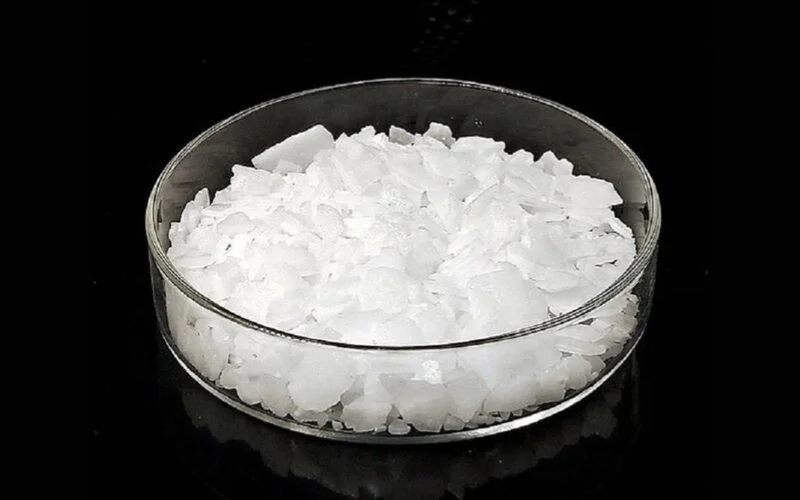
3.4.Disinfectant chemicals
Chlorine
Because Chlorine is a disinfectant and water disinfectant, capable of killing bacteria, viruses and disease-causing parasites in fish and shrimp ponds, it is widely used and highly effective.
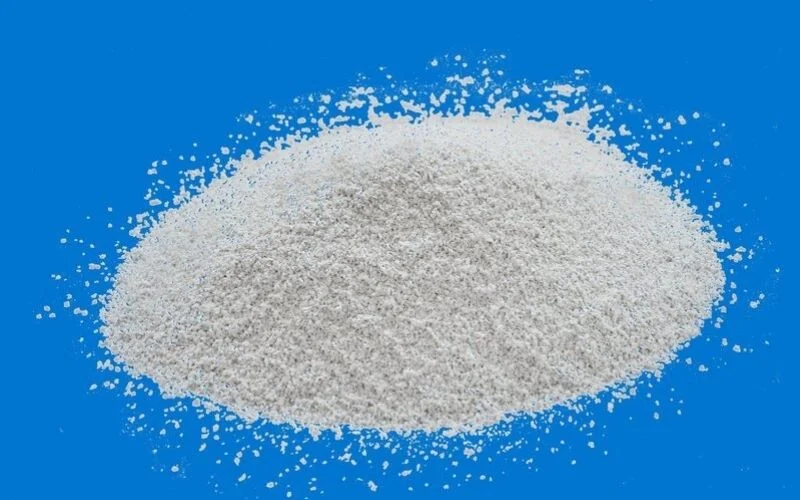
Not only that, Chlorine also possesses extremely strong antiseptic and oxidizing properties, so it is mainly applied to clean and disinfect water sources, wastewater, swimming pools,... even in the fields of textile dyeing, and seafood.
- Chlorine dioxide
This is a water treatment chemical that can be used to replace chlorine. However, in contrast to chlorine, chlorine dioxide has the ability of disinfecting even in the environment. At the same time, they can react with water to create by-products that are harmless to water sources.
- Javel water
Javel water is often used to disinfect wastewater after treatment, disinfect houses, hospitals, and clean domestic wastewater.
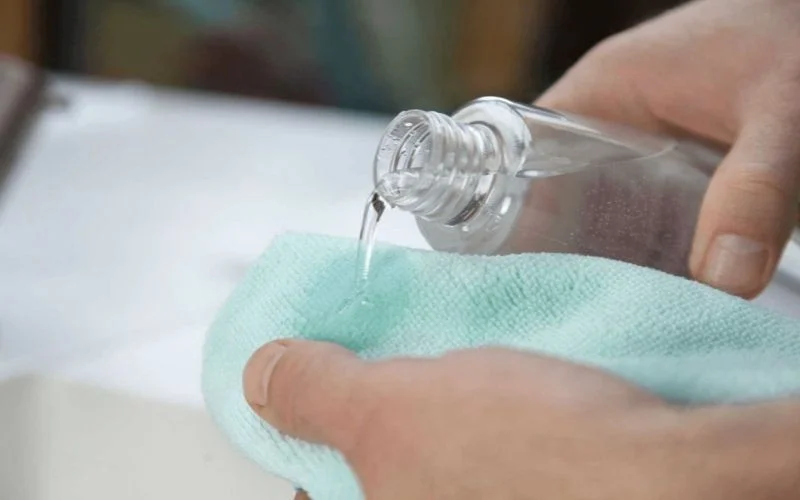
4. Efficient industrial wastewater treatment methods
Currently, there are many industrial wastewater treatment methods, typically including chemical, biological, mechanical, physicochemical and electrochemical methods.
4.1.Chemical method
For wastewater from the heavy metal, soap, ink or textile dyeing industry, people often treat wastewater by chemical methods using the following 2 options:
- Redox: Let oxidants react with toxic components in wastewater to convert into less toxic substances, which will then be separated from the water.
- Neutralization: Use neutralizing agents, acids, alkalis or acid filter materials to neutralize and reduce the effects of wastewater before discharging into the environment.
Advantages :
- Bring quick results
- Easy to manage and use
Disadvantages :
- High expense
- Secondary pollutants are easily generated during the treatment
4.2.Biological methods
- Suitable and highly effective when treating wastewater from industrial production industries containing organic ingredients
- This method works by using microorganisms to remove toxic organic substances. Those microorganisms may be added by us or are available in wastewater.
4.3.Mechanical method
This method is used for the purpose of removing substances of large size and density in wastewater. Commonly used in treating wastewater from zinc plating, chromium plating, paper production, etc. and other sources of wastewater containing heavy metals.
- Separate suspended substances in industrial wastewater using sedimentation tanks.
- Use solid screens or mesh filters to retain large insoluble impurities
- Use oil collection tanks and grease separators to separate residues that are lighter than water
- Release waste from suspension or small dispersion by using filter mesh or filter cloth or specialized filter materials.
4.4.Physicochemical method
With a harmonious combination of chemical and physical methods, this method helps remove pollutants in wastewater that cannot be treated with settling tanks. This method possesses two outstanding technologies: flocculation and liquid phase extraction.
4.5.Electrochemical method
The electrochemical method is based on the use of two forms of chemical energy and electricity to remove toxic components found in common industrial wastewater sources.
Besides, this method also includes two technologies to effectively remove toxins: electrochemical oxidation and electrochemical flocculation. In spite of high efficiency, the electrochemical method requires people with highly technical expertise and operating specifications
5. Dong A - A reputable supplier of wastewater treatment chemicals today
Dong A Joint Stock Company is proud of being a reputable supplier to many domestic businesses and customers. With genuine products, competitive prices in the market, capable of supplying large quantities with specialized chemical transport vehicles, ensuring safety and providing products to consumers quickly.

Currently, Dong A is producing and supplying many types of chemicals such as liquid PAC, high-quality powder PAC, Caustic soda, HCL acid, Chlorine, and Javel water, all of these products are tested and have high quality.
In summary, wastewater treatment chemicals play an extremely important role in industries as well as in life. However, if you do not comply with regulations and use the correct dosage, non-genuine products, it can directly affect human health and the environment.
Related Articles
Recommendations about how to treat water with a high pH
Water with a high pH is not only unpleasant but can also be harmful to your health. Therefore, ...
5 effective methods of shrimp farming wastewater treatment
Shrimp farming wastewater contains large amounts of antibiotics, organic matter and pathogenic ...
Highly Effective Method for Polluted Pond Water Treatment
Finding out the causes and having methods to treat polluted pond water will help shrimp and fish ...
What is wastewater treatment? Present methods for treating wastewater
What is wastewater treatment? This is essentially an important process to reduce pollution before ...
Summary of applications of PAC chemical for water treatment
PAC water treatment chemicals are not only commonly used in Vietnam but also in many countries ...
Instructions for safely and effectively treating swimming pool water with Chlorine
If we treat water with chlorine for swimming pools properly and in the right dosage, it will ensure ...

